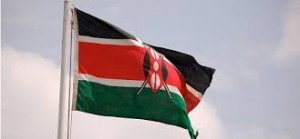
Facing widespread growth margins and a furious rise in market capitalization, the Nairobi Securities Exchange (NSE) has sought approval from the Kenyan Capital Markets Authority (CMA) to begin trading Forex , derivatives, futures and real estate investments, according to a Bloomberg statement.
The Nairobi Securities Exchange is one of the continent’s largest markets, constituting the third largest bourse in sub-Saharan Africa after South Africa and Nigeria. Its rampant growth has lead to ambitious projections, targeting a 400% increase in market capitalization in less than ten years. The next step for the Exchange appears to be the obligatory approval to trade these financial instruments, in accordance with the CMA, an independent government regulatory agency responsible for the arbitration, licensing and monitoring of market intermediaries and financial entities in Kenya.
Kenya Hopes to Carve Out Niche in FX, Derivatives

According to Donald Ouma, Head of Market and Product Development at CMA, “A system for trading derivatives has already been installed and the exchange has sent its rules on trading of Real Estate Investment Trusts (REITs) to the Capital Markets Authority for approval. The diversity of products and services that we offer will make us more relevant to the economy.”
Africa is seen as an emerging and rapidly growing market for virtually all channels of investment, namely forex. Earlier this week, Nigeria’s Central Bank instituted heightened security measures in the hopes of fostering an fx trading market, an initiative designed to mitigate the relentless specter of corruption in the region. How Kenya chooses to address this issue is another matter entirely, however the Nairobi Securities Exchange has maintained the most transparent of proceedings in an attempt to expand its offering.
NSE Sets Ambitious Goals, Kenyan GDP to Surge?
A more diverse set of financial products for the Kenyan bourse would build upon an existing offering that includes stocks and bonds. By 2023, the CMA hopes to hit a market capitalization of $83.4 billion (7.2 trillion shillings), consequently stimulating the country’s gross domestic product (GDP).

The genesis of this movement had its roots late last year when President Uhuru Kenyatta approved a measure creating a functional futures market. According to the CMA, the paramount focus at the present will remain forex, derivatives and commodity futures. The finality of the verdict, while far from complete, could help pave the way and establish a means of regulatory framework for a region long embattled by corruption and financial uncertainty.


















